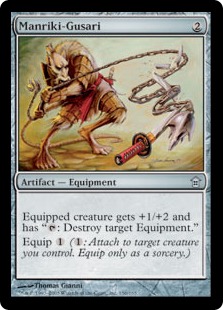Editor’s Note: We are off today enjoying a long, long, long overdue weekend away. In the meantime, enjoy this highly undervalued utility-focused Monday Magic article straight out of memory lane, which was originally published on 4/28/14.
How favorable to do want to be to your players?
On the surface, there isn’t much to that thought, but the more down the rabbit hole of design and development of a game’s rules, the more it rears its head. If you make a game too difficult, people will get frustrated and stop wanting to play it. Make it too easy, and it likewise loses its appeal.
The trick, then, is to not only give the player an obstacle to overcome, but to provide them with a rewarding experience for doing so. So you tinker with how many of these resources to give, how many of those victory points to hand out, and so on. You’ll quickly realize in this process, however, that numbers don’t always divide evenly. If you have to give up half of your five armies / gems / bananas, is that rounded up or down? Rounding up a loss or rounding down a gain aren’t construed as being as friendly as rounding in favor of the player, but arguments can be made for both sides.
Magic has a similar rule. In this game, if there is something saying a player can do something and something else saying they can’t, the can’t always wins. If there a Peacekeeper and a Grand Melee, creatures aren’t attacking. Likewise, if you’ve insisted that your evil creature with Lure must be blocked, but Bedlam is about, they won’t be doing any sort of blocking no matter how much you’d prefer it.
It’s one of the game’s founding rules, and it easily could have gone the other way. Both approaches usually have the same results in a game, but the more process-negative approach isn’t as widely loved. Go figure.
Of course, Magic also fully gives players the ability to institute their own temporary scenarios. Players can draw extra cards, or have no hand. All creatures can gain the same perk, or creatures won’t be suffered to live at all.
Then there’s artifacts. And, unless you’re a disciple of Urza, chances are you don’t like anyone having a lot of them lying around. Thus, in the spirit of can and cannot, here’s one way to address that.
Today we have: Manriki-Gusari

Name: Manriki-Gusari
Edition: Saviors of Kamigawa
Rarity: Uncommon
Focus: Artifact Destruction / Creature Buffing
Highlights: Commander is known for having a host of particular things running around in most game groups. You are bound to see a lot of mana acceleration; you are bound to see board wipes. And you are bound to see some very nasty Equipment. There are some doozies out there for sure, but you’re also probably just as likely to see near-ubiquitous copies of Lightning Greaves or Swiftfoot Boots. Depending on the color you’re playing, however, these artifacts may not be all that easy to get rid of. Manriki-Gusari takes care of that.
Aside from being a fun name to say (try it), Manriki-Gusari has remarkably low casting and equip costs, making it highly economical in decks that may not have tons of mana to spend on other removal means. Plus, the effect is highly repeatable so long as you have the creatures to bestow it upon.
Without any Equipment on the board, it merely acts as a colorless Holy Strength, and that’s not likely to turn many heads in a Commander game. This helps keep it somewhat safe. Should there be some armor or swords on the field, though, this humble Equipment not only becomes a powerful removal option, but with minimal effort becomes a deterrent for players to drop down any others.
Cast an Equipment and deal with the political side of the game, or don’t cast it at all. Can and Cannot.
True to form, more often than not, can’t will prevail here. The exception is that, this time, it is in your favor.
Keep an eye out for us to be regularly featuring other more accessible-but-worth-it Commander cards going forward. In the meantime, we’ll keep the light on for you.
![]()
You can discuss this article over on our social media!
